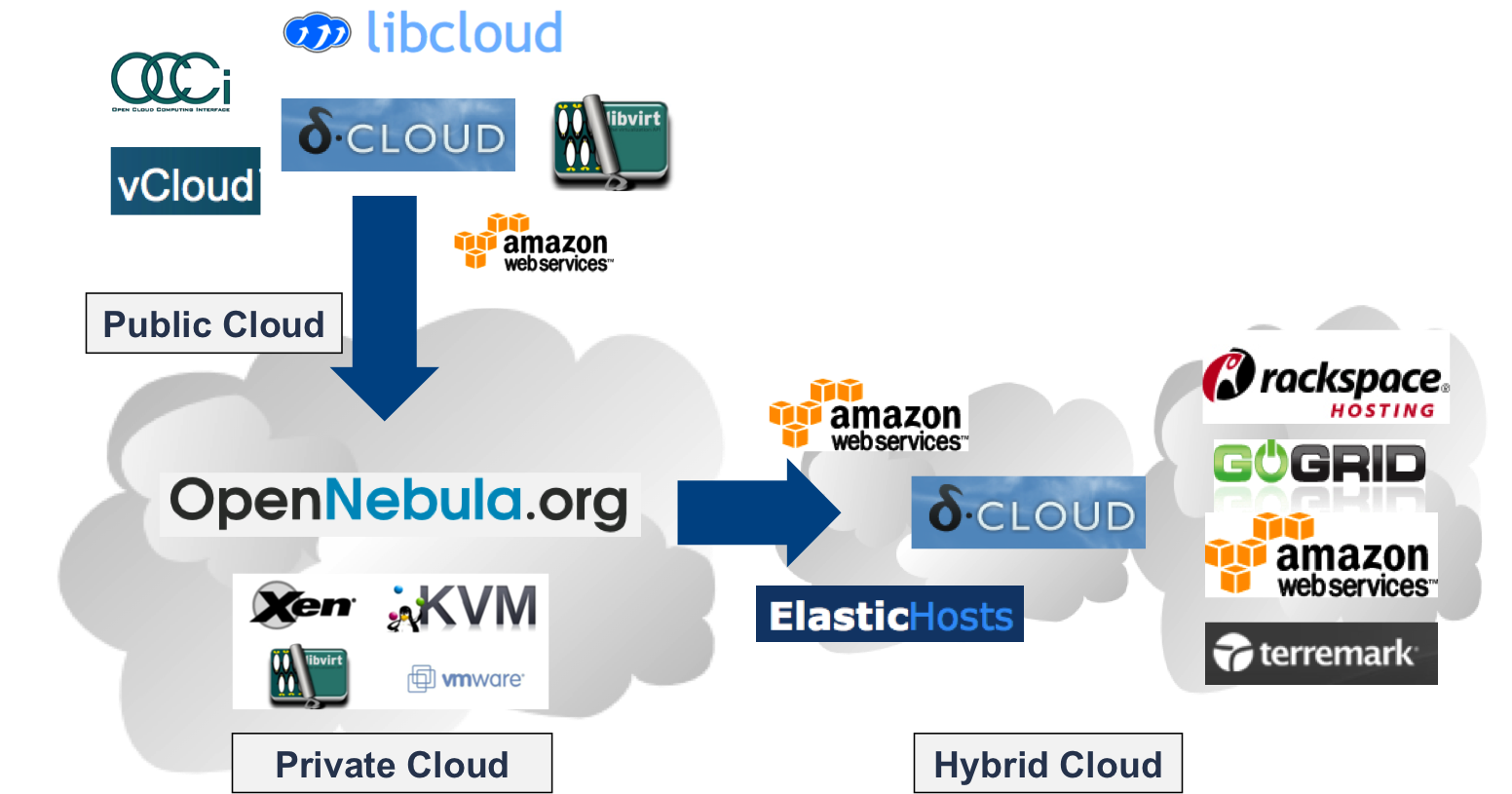OpenNebula 2.0 emphasizes interoperability and portability, providing cloud users and administrators with choice across most popular cloud interfaces, hypervisors and public clouds for hybrid cloud computing deployments, and with a flexible software that can be installed in any hardware and software combination. The functionality provided by the new version of OpenNebula and the components in its quickly growing ecosystem enable:
- Interoperability in the private cloud by supporting most common hypervisors, such as KVM, VMware or Xen, and many other virtualization stacks through its libvirt plug-in
- Interoperability in the public cloud by exposing most common cloud interfaces, such as VMware vCloud and Amazon EC2; open community specifications, such us the OGF Open Cloud Computing Interface; and open interfaces, such as libcloud and deltacloud
- Interoperability in the hybrid cloud by supporting the combination of local private infrastructure with Amazon EC2 and ElasticHosts, and any major cloud provider, such as Rackspace, GoGrid or Terremark through a RedHat’s deltacloud adaptor
Because two data centers are not the same, building a cloud computing infrastructure requires the integration and orchestration of the underlying existing IT systems, services and processes. OpenNebula enables interoperability and portability, recognizing that our users have data-centers composed of different hardware and software components for security, virtualization, storage, and networking. Its open, architecture, interfaces and components provide the flexibility and extensibility that many enterprise IT shops need for internal cloud adoption. You only have to chose the right design and configuration in your Cloud architecture depending on your existing IT architecture and the execution requirements of your service workload.
